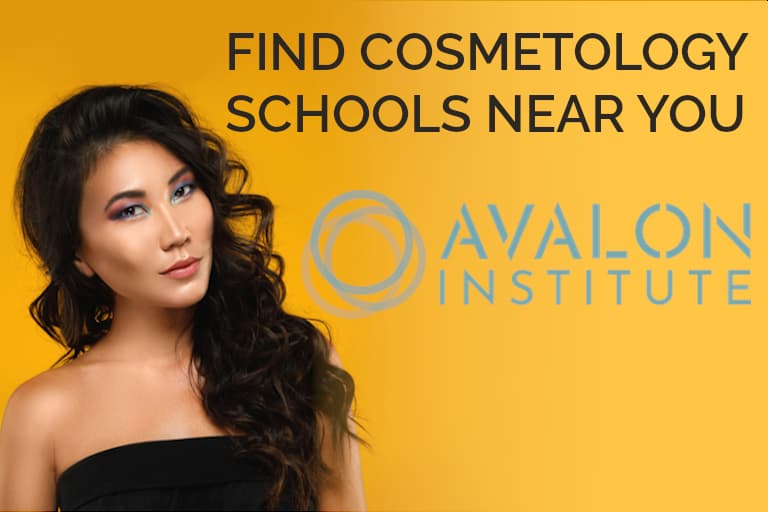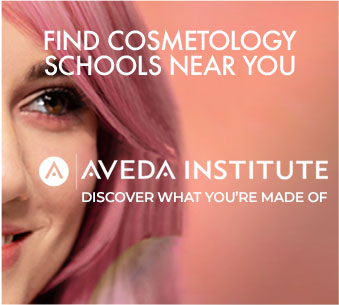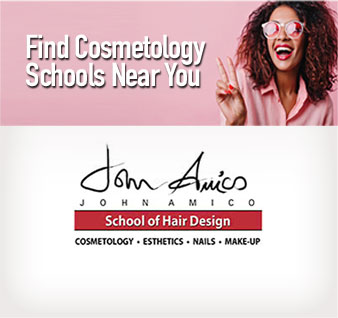Is an Esthetician Career Right for You?
Considering a career in the skincare industry? Now may be the time! The number of estheticians is expected to grow faster than the average career between 2022 and 2032. In this guide, you’ll learn more about what estheticians do, where they work, and how to plan for a career in this exciting field.
What Is an Esthetician?
An esthetician, also called a skincare specialist or aesthetician, is a licensed professional in the health and beautification of the skin. They identify cosmetic issues and skin health warning signs, then use their skills to help remedy the challenges—or refer to a medical professional if needed.
I have been in the [skincare] industry for 25 years. I've done a lot of different things, but it always goes back to what I am most passionate about, and that is helping others.
—Denise Fuller
What Does an Esthetician Do?
Most estheticians perform skin services like facials, superficial chemical peels, upper body treatments, skin conditioning, and blemish extraction. They may also do waxing, sugaring, brow shaping, lash extensions, makeovers, and more, depending on their home state and training.
The esthetic services you offer are generally up to you—though you may need to work your way up through generalized spa settings. You could choose to focus on hair removal, complexion improvement, specialized procedures like dermaplaning, chemical peels, and microdermabrasion, special event makeup, or any number of other treatments.
Estheticians are also on the front lines of trendy and emerging treatments like ultrasonic skin therapy, vitamin facials, protein peptide treatments, oxygen therapy, and LED light treatment.
Estheticians vs Cosmetologists: What’s the Difference?
Estheticians, unlike licensed cosmetologists, can provide advanced treatments like pore cleansing, extractions, microdermabrasion, chemical peels, and light therapy. They may also educate clients on products, skincare regimens, and the benefits of esthetic procedures.
READ MORE: The distinctions between estheticians and cosmetologists

sponsored content, school availability varies by location

sponsored content, school availability varies by location

sponsored content, school availability varies by location

sponsored content, school availability varies by location

sponsored content, school availability varies by location

sponsored content, school availability varies by location
Career Specialties for Estheticians
Learn More Before Starting an Esthetics Career
READ MORE: Explore other beauty career options
Where Do Estheticians Work?
The following are just a few of the most common work environments for estheticians:
Salons and Spas
Spas and salons are common starting places for new estheticians. Working in a salon setting can help you establish a strong client base, perfect your skills, and, if desired, figure out what services you want to specialize in
Estheticians working in salons may provide services such as facials, hair removal, eyebrow tinting and shaping, makeup application, and recommending products for use at home. You can also expand into aromatherapy techniques and other skills that require additional training.
READ MORE: Commission Salons vs. Booth
Medical Spas
If you want to transition into a medical esthetician career, there are medical spas (aka medspas) that operate as a hybrid between a spa and a clinic. There, you can try out more intensive treatments like microdermabrasion, minor chemical peels, and laser hair removal, typically under the watchful eye of a medical professional. Medical spas can be harder to find, whereas you can find spas in just about every city and suburb.
Medical Facilities
Many estheticians choose to work in medical facilities like dermatologists' offices, cancer treatment centers, plastic surgery establishments, and even the occasional family care locations. Here, they're more focused on skin disorders, diseases, and extensive damage. treating acne and other skin issues. It's an ideal path for those looking to work closely with patients with specific health conditions to improve their quality of life.
It's important to remember that estheticians rarely to never provide medical advice or treatments. They're there to support the medical staff and provide a confidence boost and basic assistance to clients.
Medical facilities that offer esthetic services are more common in densely populated areas than rural ones.
Luxury Resorts and Hotels
Spas at resorts and hotels are more likely to create a very calming environment. You can expect to work to the sound of quiet music and under dimmed lighting—unless the service requires you to see well, of course. While you might get to know individual clients well over hours of treatments, you're unlikely to build a client base at a hotel or resort because people
READ MORE: Destination Beauty: The Traveling Esthetician
Specialty Esthetics or Beauty Locations
Storefronts or kiosks offering face or skincare services such as eyebrow shaping, waxing, and threading have become more popular. Estheticians working in highly-specialized settings that focus on just one or two treatments, are more likely to see high client turnover, rather than developing a strong client base. Depending on where the location is located, you may be expected to perform other retail duties, as well.
READ MORE: Skin Care On-the-Go: Mobile Estheticians
Beauty Schools
You can use your skills as an esthetician to train others. Becoming a beauty instructor requires additional training and licensure. Check with your state’s regulating board.
Ask a Beauty Professional: How do I choose the right work setting for me?

Jessica Saint
Jessica Saint, an esthetician and hair and makeup artist, found the spa setting to be her ideal work environment. “For me, it wasn't even a question,” Saint says. “I found a spa that had the aesthetic I loved, offered all of the services I wanted to bring my clientele in to do, and had the flexibility I needed to still be able to do photoshoots, fashion week, and production work.” However, Saint suggests salons for those who are more interested in makeup and waxing.
“Experiencing the services a place offers is a great way to figure out if it is somewhere you want to work and allows you to meet those who work there,” Saint says.
Traits of a Successful Esthetician
The life of an esthetician is not for everyone. It's deeply personal work that involves close and intimate physical contact with other human beings. If you find biological components like hair, oil, perspiration, and, of course, skin to be icky, it's probably the wrong line of work. Estheticians must stand for long hours in close quarters with chemicals, conditioners, lotions, and other materials that can emanate smells.
First and foremost, however, it is a people job. There's room for many personality types—some clients come to chit chat, others to relax and zone out—but success always requires a professional demeanor that instills confidence in the people who are trusting you with something as intimate as their skin.
READ MORE: Student Voices Series: Why I Became an Esthetician

sponsored content, school availability varies by location

sponsored content, school availability varies by location

sponsored content, school availability varies by location

sponsored content, school availability varies by location

sponsored content, school availability varies by location

sponsored content, school availability varies by location









